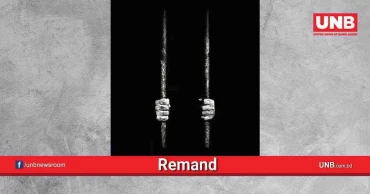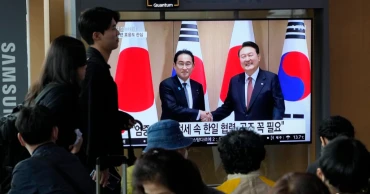leader
10 Ways to Boost Team Productivity in Workplace
Team performance in offices and organisations plays a pivotal role in determining overall productivity. A highly productive team is an asset, and enhancing productivity is an ongoing endeavour. Let’s take a look into some innovative and cost-effective ways to empower your team while maintaining a harmonious and social work environment.
How to Increase the Efficiency of Your Team at Workplace
Encourage Open Dialogue
Open communication acts as a catalyst, driving the team towards greater efficiency, enhanced problem-solving capabilities, and an overall uplift in the working spirit. It is the secret ingredient for a thriving, successful team.
Encouraging open dialogue within the team is like infusing life into its veins. It is vital for fostering a truly productive environment. This practice invites team members to express their thoughts and concerns freely, creating a breeding ground for fresh and innovative solutions. It not only bolsters collaboration but also instils unity and belonging.
Read more: Antifragile Career: 10 ways to make your profession sustainable
Utilise Communication Tools
In today's fast-paced work environment, embracing these digital tools is one of the keys to maintaining seamless communication and fostering effective teamwork. Through these platforms, sharing information, coordinating tasks, and collaborating on projects become simplified and highly efficient.
Depending on the necessity and style of operations, office management can utilise digital platforms such as Slack, Microsoft Teams, or Trello to enable smooth team communication. These tools can actively create a collaborative work environment by providing a virtual space where team members can interact effortlessly. Thus, team leaders can ensure that team members remain closely connected and well-informed.
Define Clear Goals
Clarity takes precedence. It is necessary to define and communicate precise objectives to guarantee that every team member comprehends his or her roles and responsibilities. A team manager can implement SMART (Specific, Measurable, Achievable, Relevant, and Time-bound) goals to set more attainable and motivating objective.
Read more: 5 Essential Skills to Make Money Online
These well-defined goals create a roadmap that guides the team's efforts. It makes the tasks and targets of each team member more accessible to grasp and accomplish. By adhering to SMART criteria, a team manager clarify expectations and also infuse a sense of purpose and direction. This propels the team towards greater accomplishments and motivation.
2 years ago
13 BNP leaders, activists remanded in Sylhet
A Sylhet court on Wednesday placed 13 BNP and Chhatra Dal leaders and activists on a one-day remand in a case over alleged involvement in police assault and obstruction of government work.
Sylhet Kotwali police station arrested them on Tuesday and produced them in court seeking a five-day remand for each.
However, Sylhet Metropolitan Magistrate third court Judge Sharmin Khanam placed them a one-day remand each, said Sylhet District BNP General Secretary Emran Ahmed Chowdhury, who appeared for them at the court.
The accused are Sylhet Mahanagar Chhatra Dal joint secretary Abul Hossain, former co-organizer Md. Abdus Salam, Juba Dal leader Parvez Ahmed, Raju Ahmed, Chhatra Dal leader Kamrul Hasan, Goalabazar Union Chhatra Dal members of Osmaninagar Upazila Junaid Hossain, Saiful Islam, Md. Hafizur Rahman, former Publicity Secretary of Metropolitan BNP Shamim Mazumder, Joint General Secretary of Ward No. 3 BNP MA Lahin, Member of Ward No. 25 BNP Badrul Islam, Ward No. 27 BNP General Secretary Nazrul Islam, and Jasa leader Siraj Uddin.
On May 2, police arrested eight leaders and activists from a Chhatra Dal procession in the Chowhatta area of Sylhet.
Later, sub-inspector (outpost in-charge) Kazi Jamal Uddin of Kotwali police station's Shahjalal R. investigation center filed a case against eight named people and 150 to 200 unnamed individuals.
They were accused of assaulting police and obstructing government work. Police later arrested some others in that case.
In Sylhet, the police have arrested 50 leaders and activists of BNP and its associate organizations in various cases, said Emran Ahmed Chowdhury.
“Police said in the remand application in the court that the accused could do more sabotage. Interrogation on remand is necessary to obtain information from them. However, we said that no such incident happened as per the information given in the case details. There is no legal basis for putting the accused on remand in such cases," he said.
2 years ago
Japan leader expresses sympathy for Korean colonial victims
Japan’s prime minister expressed sympathy for the suffering of Korean forced laborers during Japan’s colonial rule, as he and his South Korean counterpart on Sunday renewed resolve to overcome historical grievances and strengthen cooperation in the face of shared challenges such as North Korea’s nuclear program.
Comments by Japanese Prime Minister Fumio Kishida during his summit with South Korean President Yoon Suk Yeol — their second meeting in less than two months — were closely watched in South Korea, where many still harbor strong resentment against Japan's 1910-45 colonial occupation of the Korean Peninsula.
Yoon has faced domestic criticism that he had preemptively made concessions to Tokyo without getting corresponding steps in return. Kishida’s statement, which avoided a new, direct apology over the colonization but still sympathized with the Korean victims, suggests he felt pressure to say something to maintain momentum for an effort to improve ties.
“And personally, I have strong pain in my heart as I think of the extreme difficulty and sorrow that many people had to suffer under the severe environment in those days,” Kishida told a joint news conference with Yoon, referring to the Japanese colonial period.
He said he believes “it is my responsibility as prime minister of Japan to cooperate with” Yoon to forge stronger relations.
Kishida arrived in South Korea earlier Sunday for a two-day visit, which reciprocates a mid-March trip to Tokyo by Yoon and marks the first exchange of visits between the leaders of the Asian neighbors in 12 years.
The back-to-back summits were largely meant to resolve the countries’ bitter disputes caused by the 2018 court rulings in South Korea that ordered two Japanese companies to financially compensate some of their aging former Korean employees for colonial-era forced labor. Japan has refused to abide by the verdicts, arguing that all compensation issues were already settled when the two countries normalized ties in 1965.
The wrangling led to the countries downgrading each other’s trade status and Seoul’s previous liberal government threatening to spike a military intelligence-sharing pact. Their strained ties complicated U.S. efforts to build a stronger regional alliance to better cope with rising Chinese influence and North Korean nuclear threats.
In March, however, Yoon’s conservative government took a major step toward mending the ties by announcing it would use local funds to compensate the forced labor victims without demanding contributions from Japanese companies. Later in March, Yoon traveled to Tokyo to meet with Kishida, and the two agreed to resume leadership-level visits and other talks. Their governments have since taken steps to withdraw their economic retaliatory steps.
Yoon’s push, however, drew strong backlash from some of the forced labor victims and his liberal rivals at home, who have demanded direct compensation from the Japanese companies. Yoon has defended his move, saying greater cooperation with Japan is required to jointly tackle North Korea’s advancing nuclear program, the intensifying U.S.-China strategic rivalry and global supply chain challenges.
“We should stay away from a thinking that we must not make a step forward because our history issues aren’t settled completely,” Yoon said Sunday. He said that 10 out of the 15 former forced laborers or their families involved in the 2018 rulings had accepted compensation under Seoul’s third-party reimbursement plan.
Kishida said: “I’m struck by the fact that many people, despite their painful memories from the past, opened their hearts for the future as measures by the South Korean government related to (the fund) move forward.”
Kishida also reaffirmed his government upholds the positions of previous Japanese administrations on the colonization issue, including the landmark 1998 joint declaration by Tokyo and Seoul, but didn’t make a new apology. In that declaration, then-Japanese Prime Minister Keizo Obuchi said: “I feel acute remorse and offer an apology from my heart” over the colonial rule.
Japanese governments have expressed remorse or apologies over the colonial period numerous times. But some Japanese officials and politicians have occasionally made comments that have been accused of whitewashing Tokyo’s wartime aggressions, prompting Seoul to urge Tokyo to make new, more sincere apologies.
Ahead of his summit with Yoon, Kishida and his wife, Yuko Kishida, visited the national cemetery in Seoul, where they burned incense and paid a silent tribute before a memorial. Buried or honored in the cemetery are mostly Korean War dead, but include Korean independence fighters during the period of Japanese rule. Kishida was the first Japanese leader to visit the place in 12 years.
“Kishida’s comments about Koreans who suffered under Japanese colonialism may be criticized for not being more specific about historical perpetrators and more apologetic toward historical victims,” Leif-Eric Easley, a professor at Ewha University in Seoul, said. “But Kishida did visit South Korea’s national cemetery and said that his heartfelt views, respect for the past, and recognition of current global challenges produce a sense of responsibility for improving Seoul-Tokyo relations.”
Yoon said talks among Seoul, Tokyo and Washington are underway to implement their earlier agreement on a faster exchange of information on North Korean missile tests. Yoon said he and Kishida reaffirmed that North Korea’s nuclear and missile programs pose a grave threat to the two countries and the rest of the world.
In late April, Yoon made a state visit to the United States and agreed with President Joe Biden to reinforce deterrence capabilities against North Korea's nuclear threats. During a joint news conference, Biden thanked Yoon “for your political courage and personal commitment to diplomacy with Japan.”
Yoon, Biden and Kishida are expected to hold a trilateral meeting later this month on the sidelines of the Group of Seven meetings in Hiroshima to discuss North Korea, China's assertiveness and Russia's war on Ukraine. Yoon was invited as one of eight outreach nations.
Kishida said he and Yoon would pay respects before a memorial for Korean atomic bomb victims in Hiroshima. In another apparent conciliatory measure, Kishida said Japan will allow South Korean experts to visit and inspect a planned release of treated but still radioactive wastewater from the damaged Fukushima nuclear power plant.
2 years ago
Another Rohingya camp leader gets shot in Cox’s Bazar
A Rohingya leader of camp No 9 sustained a bullet injury in an attack by miscreants in Ukhiya upazila of Cox’s Bazar on Tuesday night.
Mohammad Hossain is a leader, locally known as Head Majhi, of the Rohingya camp No 9 in Balukhali Moinakhonar area of the upazila.
Sheikh Mohammad Ali, officer-in-charge of Ukhiya Police Station, confirmed the matter and said the Rohingya leader received three bullets in his body during the attack around 8pm, leaving him critically injured.
Read: Man arrested in fatal shooting of student at SUNY-Potsdam
He was rushed to Cox’s Bazar Sadar Hospital where has been undergoing treatment, he said adding that no one has been arrested so far.
3 years ago
Former BCL leader beaten by up Naldanga upazila chairman dies at hospital
A former Bangladesh Chhatra League (BCL) leader, who was allegedly beaten up by Naldanga Upazila Parishad Chairman Asaduzzaman over a Facebook post on Monday, died while undergoing treatment at a hospital on Tuesday.
The deceased is identified as Jamiul Alim Jibon, a former member of the upazila unit BCL and son of Farhad Hossain of Aamtali Bazar area.
Sources said Chairman Asaduzzaman beat up the former BCL leader and his father after calling them to the bazar over the Facebook status on Monday evening, leaving them critically injured.
They were first rushed to Natore Sadar Hospital and later shifted to Rajshahi Medical College Hospital (RMCH) due to deterioration of their physical conditions.
Jibon succumbed to his injuries while undergoing treatment at the Intensive Care Unit of the RMCH on Tuesday evening.
Read: BCL factional clash leaves eight injured at Chattogram College
Meanwhile, the victim’s mother Jahanara Begum lodged a complaint at the police station in this connection.
Shafiqul Islam, Officer-in-charge of Naldanga Police Station, said they heard the news of death of Jibon. The chairman is yet to be detained in this connection.
Chairman Asaduzzaman, also member of the upazila unit Awami League, could not be reached over mobile phone as it was found switched off.
3 years ago
Awami League leader Mukul Bose passes away
Mukul Bose, a member of the Advisory Committee of the ruling Awami League, passed away at a hospital in India on Saturday. He was 68.
Mukul had been suffering from different diseases and was initially admitted to a hospital in the Mohammadpur area.
READ: Former state minister Gautam Chakraborty dies
He was later shifted to Apollo Hospital in the southern Indian city of Chennai, where he breathed his breath around 5.20am, said Awami League office secretary Barrister Biplab Barua.
Mukul is survived by his wife, a son and a daughter.
3 years ago
Venezuelan opposition leader attacked during national tour
The leader of the U.S.-backed opposition in Venezuela was physically attacked Saturday during a visit to a rural community, according to members of his parallel government, who accused a group of ruling party associates of carrying out the assault.
A photo accompanying the opposition statement shows Juan Guaidó being held back as people gather around him and someone rips his shirt off. The parallel government said the group, which was associated with the United Socialist Party of Venezuela, known as PSUV, “hit and insulted” Guaidó, who is on a tour around the South American country seeking to unite and organize his party ahead of a planned primary election.
In an Instagram video Saturday night, Guaidó characterized the attack as an “ambush” at a plant nursery in San Carlos, a community about 168 miles (270 kilometers) southwest of Caracas, the capital. But he added that it won't deter him from continuing to be “on the street.”
“Those who attacked today, these members or leaders of the regime’s party," should accept responsibility for the incident, he said.
READ: Bangladesh to work for resolving dispute between Guyana and Venezuela: FM
PSUV leaders, who traditionally issue statements on social media or state television, did not immediately respond.
Last week, Guaidó's supporters were met by a barrage of flying plastic chairs and fisticuffs from allies of President Nicolás Maduro in the western city of Maracaibo.
The U.S. and other nations recognize Guaidó as Venezuela’s interim president. They withdrew recognition of Maduro after accusing him of rigging his 2018 re-election as president.
At the time, Guaidó drew enormous crowds of backers into the streets, but much of the momentum has evaporated. His popularity has dropped from about 60% three years ago to under 15% in February.
Brian Nichols, the U.S. assistant secretary of state for Western Hemisphere affairs, on Saturday condemned what he described as an “unprovoked attack” on Guaidó.
“This egregious attack risked lives; those responsible for the assault should be brought to justice,” he said.
3 years ago
BCL leader expelled on allegation of abducting, torturing youth in Satkhira
Organizational Secretary of Tala upazila committee of Bangladesh Chhatra League in Satkhira has been expelled for kidnapping a male student and then torturing and harassing him by recording his nude video and demanding Tk 2 lakh as ransom.
Syed Akib, the accused BCL leader, was expelled on Tuesday over the incident, confirmed Ashiqur Rahman Ashiq, president of BCL Satkhira district committee.
Meanwhile, the complaint lodged by victim’s father Sheikh Azizur Rahman has been lodged as a case at Tala police station but none of the absconding accused had been held yet, said Abul Kalam, Officer-in-Charge of Tala police station.
On Sunday, Shoeb Aziz Tonmoy, 20, a university admission test examinee from Jatpur village in the Sadar upazila was allegedly kidnapped and tortured by some BCL men at Tala Government College.
Tonmoy’s father Azizur Rahman accused Syed Akib, 25, Organizational Secretary of Upazila BCL, Soumitra Chakraborty, 32, Organizational Secretary of Upazila Sramik League, and BCL members JR Sumon, 25, Joy, 24, and Nahid Hasan Utsho of being involved with the incident.
Azizur Rahman said around 1am, Nahid, who was an acquaintance of Tonmoy, asked him to come in front of Tala Government College and from there the alleged BCL members took him inside a room in the college.
“They had beaten him, shaved his head, and recorded a video of him after removing his clothes. At one point they called my wife and asked for Tk 2 lakh as ransom, claiming they kidnapped Tonmoy. She could hear Tonmoy’s cries over the phone call,” said Tonmoy’s father.
Around evening Tonmoy was rescued from the college and was taken to Tala Hospital.
READ: BCL members harassed, tortured youth after kidnap in Satkhira
“As I went to lodge a complaint at Tala police station, one of the accused’s father called me and threatened me not to do it,” said Azizur Rahman.
Tonmoy’ s father suspected the accused wanted to snatch the new motorcycle he bought for Tonmoy. There are also rumours of Aqib and Tonmoy being involved in a love triangle, with Tonmoy now dating a girl Aqib used to date.
“All his kidnappers were BCL activists and the room they took him to seemed like a torture cell in the Tala College student dormitory,” Tonmoy's father said.
3 years ago
Pressure mounts on Sri Lanka leader to quit as crisis grows
Thousands of Sri Lankans rallied in the country’s main business district and Christian clergy marched in the capital to observe a day of protest on Saturday calling on the debt-ridden nation’s president to resign, as anxiety and anger over shortages simmered.
Protesters carrying national flags and placards, some bemoaning the hardships through songs, blamed President Gotabaya Rajapaksa and his administration for mismanaging the crisis. He has remained steadfast in refusing to step down even after most of his Cabinet quit and loyal lawmakers rebelled, narrowing a path for him to seek a way out as his team prepares to negotiate with international lending institutions.
“Go home Rajapaksas" and "We need responsible leadership,” read the placards.
The protest also included a large number of youngsters who had organized themselves through social media and refuse to accept any political leadership. Many carried signs, saying “You messed with the wrong generation!”
The protesters stayed around the president’s office and vowed not to leave until their mission is accomplished.
For months, Sri Lankans have stood in long lines to buy fuel, cooking gas, food and medicines, most of which come from abroad and are paid for in hard currency. The fuel shortage has caused rolling power cuts lasting several hours a day.
The Indian Ocean island nation is on the brink of bankruptcy, saddled with $25 billion foreign debt over the next five years — nearly $7 billion of which is due this year alone — and dwindling foreign reserves. Talks with the International Monetary Fund are expected later this month, and the government had turned to China and India for emergency loans to buy food and fuel.
Much of the anger expressed by weeks of growing protests has been directed at Rajapaksa and his elder brother, Prime Minister Mahinda Rajapaksa, who head an influential clan that has been in power for most of the past two decades. Five other family members are lawmakers, three of whom resigned as ministers last Sunday.
READ: Sri Lankan president revokes emergency amid growing protests
Thakshila Jayasinghe, a 35-year-old lawyer who joined the protest, said that she felt sorry for voting for Rajapaksa in the 2019 presidential election. “I wonder what sin I have committed by voting for this president when I see the people suffer," she said.
Reports said that at least four elderly people have died while standing in lines for hours trying to buy cooking gas or kerosene oil.
Jayasinghe said she voted for Rajapaksa believing he was the best candidate to restore national security following the 2019 Easter Sunday bomb attacks that killed more than 260 people. The attacks, blamed on local Muslim militants with ties to the Islamic State group, also shattered the tourism industry, alongside the pandemic, depriving Sri Lanka of hard currency.
At the same time, critics accuse Rajapaksa of borrowing heavily to finance projects that earn no money, such as a port facility built with Chinese loans.
Catholic clergy and lay people joined a rally from the “martyrs cemetery” in Negombo, north of the capital Colombo, where more than 100 people who died in the suicide attacks in the area's St. Sebastian's Church are buried.
They protested the economic crisis as well as the government's alleged failure to uncover the conspirators behind the bombings.
“Today the country needs a major change and a new beginning,” Cardinal Malcolm Ranjith, the archbishop of Colombo, told protesters. “We ask from every citizen of this country to come together and change this system. To get together and tell these people to leave.”
“It’s enough now, it’s enough destroying the country, now leave and hand it over to someone who can govern this country,” he said.
The protest later moved near the Anglican cathedral in Colombo.
The Catholic Church in Sri Lanka has been critical of the investigation into the bombings, citing allegations that some members of the state intelligence units knew and met with at least one of the attackers.
Rajapaksa earlier proposed the creation of a unity government following the Cabinet resignations, but the main opposition party rejected the idea. Parliament has failed to reach a consensus on how to deal with the crisis after nearly 40 governing coalition lawmakers said they would no longer vote according to coalition instructions, significantly weakening the government.
With opposition parties divided, they too have not been able to show majority and take control of Parliament.
3 years ago
2 farmers’ suicide in Rajshahi: Krishak League leader held
Police arrested a local Krishak League leader from Chabbishnagar in Godagari upazila of Rajshahi district in connection with the death of two farmers who allegedly ended their lives for not getting irrigation water for their land.
The arrestee was Shakhawat Hossain, 30, president of no 5 ward unit Krishak League leader and deep tubewell operator of Barind Multipurpose Development Authorities (BMDA) .
Iftekhar Alam, Additional Superintendent of police, said a team of police led by officer-in-charge of Godagari Police Station Quamrul Islam conducted a drive in the area around 1 am and arrested him.
On March 24, Rabi Marandi, 32, a Santal community member of Nimghatu village in Godagari upazila, and his cousin Abhinath, 30, consumed poison in front of Shakhawat Hossain.
READ: Farmers’ suicide ‘for irrigation water’: Human chain demands justice
They took the decision out of anger "as Shakhawat was not giving them a serial number for a long time to get irrigation water supplied to their fields in Iswarpur", according to their family.
Abhinath died around 9pm after reaching home on March 24 while Rabi died two days later at Rajshahi Medical College and Hospital (RMCH).
Brigadier General Shamim Yazdani, director of RMCH, confirmed both the brothers died from consumption of poison.
The Agriculture Ministry has formed a four-member panel to probe the deaths of two farmers.
3 years ago





.png)

.jpg)







